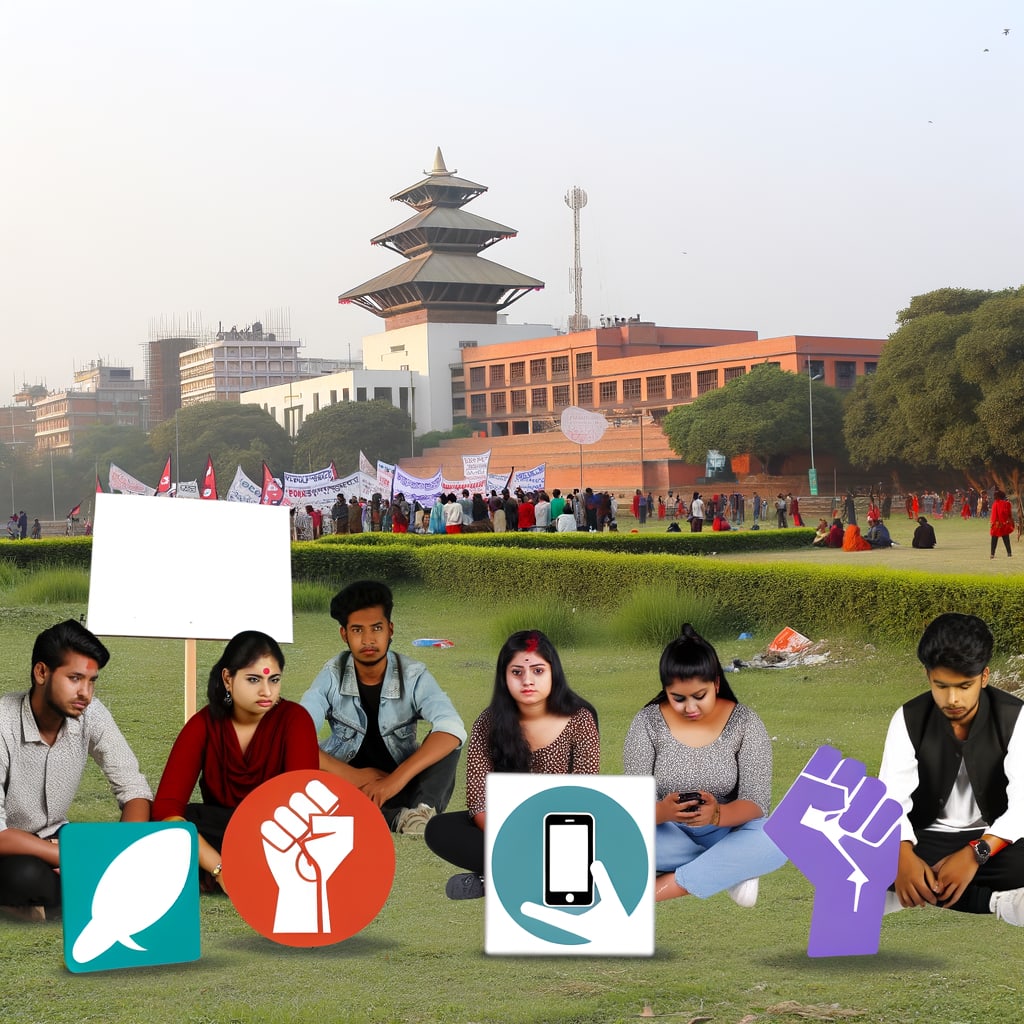Nepal's Gen Z Protests: Social Media Ban Ignites Flames of Dissatisfaction
Nepal has been rocked by a wave of protests led predominantly by its digitally connected Generation Z, in response to a nationwide social media ban. The unrest has spiraled into broader discontent, fueled by grievances over rampant corruption, unemployment, and a perceived lack of political transparency. The escalating situation has resulted in a deadly wave of civil unrest, forcing the prime minister to resign.
Background and Context
Nepal's Gen Z protests were triggered by a sudden attempt by the government to ban major social media platforms, which were seen as a vital lifeline for the country's youth. The ban was later reversed, but not before it had ignited a flurry of dissatisfaction, leading to what some have called the deadliest wave of civil unrest in decades.
As reported by The Diplomat, Gen Z, the most digitally connected generation in Nepal, is demanding transparency, civic freedom, and fairness from its authorities. Their grievances, however, are not limited to the digital sphere. According to the New York Times, the protesters are also fueled by longstanding grievances that have been building up over the years.
Key Developments
With the situation rapidly escalating, the protests took a violent turn. Government buildings were torched, the prime minister's residence set on fire, and at least 19 people have been killed, with hundreds more wounded, as reported by Fox News. The severity of the situation led to the resignation of Prime Minister K.P. Sharma Oli. The Hindu notes that the social media ban was merely a catalyst, and the protests quickly snowballed into a broader indictment of Nepal's political establishment.
According to The Diplomat, the protests have exposed systemic governance failures in Nepal, with public dissatisfaction, particularly among young Nepalis, running high against the current leadership and the degradation of democratic institutions and norms.
Implications and Reactions
Russian analysts, as highlighted by Russia Today, have referred to the situation as an 'internet revolution', observing that what began as a social media ban has spiraled into Nepal's biggest upheaval in years. The analysts warn of the potential risks ahead as the country grapples with its most serious political crisis in years.
Amid the turmoil, the privileged lifestyles of the children of the Nepalese elite, dubbed 'Nepo kids', have become a source of outrage, adding fuel to the fire. New York Times reports that videos and photos purporting to show the extravagant lifestyles of these children have further incensed the young protesters.
Current Status
Although the social media ban has been lifted following the violent protests, the unrest shows no sign of abating. As reported by Al Jazeera English, 'Gen Z' demonstrators continue to express their anger on the streets. It appears that what started as a protest against digital censorship has now evolved into a nationwide demand for political reform and accountability.
Despite the challenges, The Hindu quotes a Nepali protester saying, This is a national movement now, not just Gen Z
. The sentiment is echoed by Daily Nation, which highlights that Gen Z will hold historical influence in Nepal's 2027 elections and beyond.

